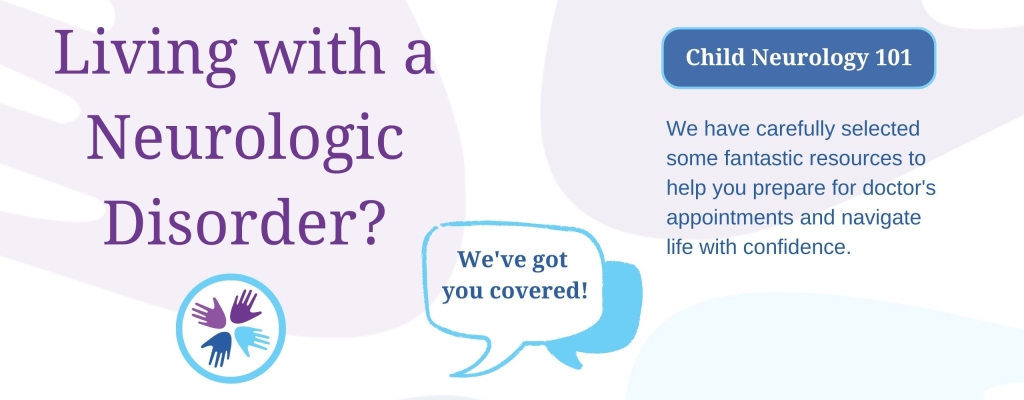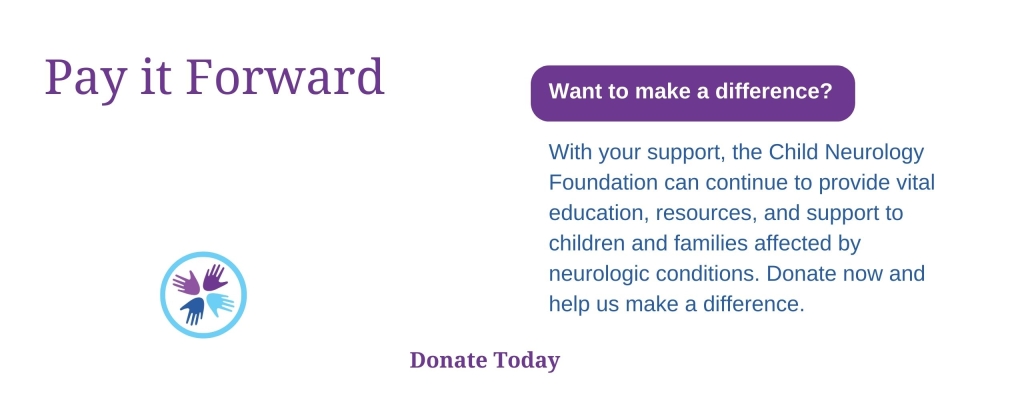Every year, our partners at the American Academy of Neurology host a week-long conference for neurologists to gather and learn from each other at their Annual Meeting. This year, I was lucky enough to attend for a day to represent the Child Neurology Foundation and support a talk featuring our 2022-2023 Institutional Partnership in Transition of Care grantees.
For those not already familiar, Transition of Care means the process of moving a young adult from pediatric neurology care into adult neurology care. While this may seem straightforward, the young adults, caregivers, and clinicians who are involved with this process will tell you it’s difficult to the point where it may feel downright impossible. While CNF has resources for caregivers and clinicians in this space, it’s important that we keep moving forward to address the challenges our families face.
Two of the biggest struggles of transition of care we hear from in our community are: 1) a lack of coordination between pediatric and adult providers and 2) a lack of comfort level for adult neurologists treating patients who have medical complexities and/or neurodevelopmental disabilities that have been present from birth, rather than acquired later in life in the cases of conditions like Parkinson’s, Alzheimer’s, or other conditions in adulthood affecting speech and function. This year’s grantees have been working on projects that seek to tackle these difficulties.


Living With A Neurologic Disorder Disorder Directory Child Neurology Foundation
CNF gave $25,000 to teams at both Lurie Children’s Hospital of Chicago and Boston Children’s Hospital to try quality improvement activities as their institutions that may lead to more successful transitions of care. At the AAN Annual Meeting, CNF was proud to support these grantees as they shared their important work with neurologists who are trying to make change at their home institutions.
In a panel moderated by Transition Project Advisory Committee co-chairs Dr. Ann Tilton and Dr. Christine Baca, project leads from Lurie—Dr. David Bieber and Dr. Alexa King—and Boston—Dr. Sarah Spence and social worker Susan Shanske—shared the lessons they learned and strategies other clinicians could implement into their own work on transitions.
The Boston team shared that the motivation for their work was realizing that young adults with neurodevelopmental disabilities were particularly vulnerable and more likely to have a poor transfer to adult neurology, but not changing this will lead to more healthcare inequalities for this population. This problem is becoming more pressing every day because of advancements in therapies: today, there are more adults with neurodevelopmental disorders because these people are making it into adulthood! It’s a wonderful problem to have, and one that requires better preparation of the adult neurology care team “catching” that young adult into their practice. To take this on, the Boston team developed a Learning Collaborative model to increase confidence among the many dedicated providers who want to work together to make better transfers to adult neurology happen. They shared that they are constantly evaluating the effectiveness of this work, and are already planning a summit for the fall to share pathways for improvement with an even larger community.
The Lurie team’s work was in part driven by the fact that even though Northwestern Medicine, the adult hospital, is physically linked to the children’s hospital, the institutions did not collaborate as much as the team would like around transition of care. They shared the details of their project, where epilepsy patients are driven to a “warm hand off” to their adult neurologist by leveraging telehealth to get the child neurologist, adult neurologist, and young adult patient in the same room at the same time. In addition, this team has collaborated with partners at the University of Michigan to integrate surveys into the electronic medical records to better understand the needs of patients and make decisions based on the evidence they gather.
During questions from the audience, the entire panel reiterated that the system as it exists now is not built to support transitions of care for medically complex young adults, and everyone involved has particularly strong feelings how the eventual transfer to adult care should be handled. These strong feelings are compounded by difference between pediatric and adult care: while there are always exceptions, pediatrics tends to be more family-centered, and adult care is more individually-centered. The panel noted that this change can feel stark, but is not catastrophic so long as there is adequate preparation for that change.
It was powerful to see attendees of the Annual Meeting so engaged with the grantees; long after their presentation was over, many audience members stayed asking questions to the panelists to learn more about the ways they can improve the way they prepare young adults for the transfer to adult care. It was really inspiring to see the way that CNF is fulfilling its mission. About a year ago, CNF leadership added a clause to our mission statement highlighting the importance of including clinicians in the work of patient advocacy. Our mission now reads: “To serve as a collaborative center of education, resources, and support for children and their families living with neurologic conditions, and to facilitate connection with medical professionals who care for them.” Through these grants, CNF finds way to support these medical professionals and embed the continuous feedback loop between clinicians and caregivers to keep working toward the realization of our vision: “a world in which all children affected by neurologic disorders reach their full potential.”
While certainly a highlight, this panel was not the only talk I saw while at the Annual Meeting. I attended a course directed by CNF Board Member Dr. Madeline Chadehumbe that discussed the importance of Child and Adolescent Neurology for Adult Providers. CNF Board Member Dr. Sonika Agarwal also served as faculty. This course was packed! Attendees learned both that adult neurologists should learn more about both common and rare conditions that affect children because sometimes, the same conditions can be seen in adults independently. But moreover, these children will become adults, and they will need to transfer to adult neurology. It was thrilling to see CNF clinician leadership’s passion in action for our community and the children and families we all serve.
What an exceptional time I had at the American Academy of Neurology Annual Meeting! On behalf of CNF, I’d like to say thanks to our AAN partners for putting on such a wonderful conference for neurologists.



